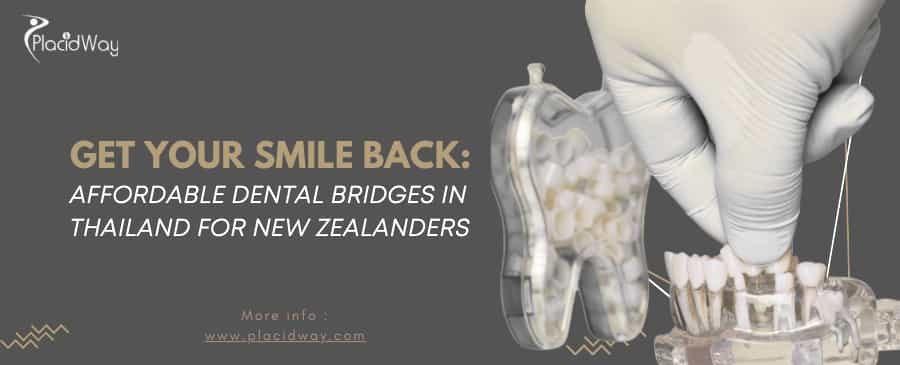
Dental bridges offer a fixed, reliable solution for replacing missing teeth, and for New Zealanders, Thailand presents a world-class option that delivers substantial savings without compromising quality.
Dental tourism has experienced explosive growth among New Zealand residents seeking high-quality, affordable dental care. Procedures like getting a dental bridge—a fixed prosthetic solution for one or more missing teeth—can cost thousands of dollars locally, often without immediate availability. Thailand, particularly medical hubs like Bangkok, Phuket, and Chiang Mai, has positioned itself as a premier destination, combining certified dental expertise with significant cost efficiencies, often saving patients 50% to 70% compared to prices in Auckland or Wellington.
This guide provides a comprehensive overview for Kiwis considering dental bridges in Thailand, covering everything from the procedure types and candidacy requirements to detailed cost breakdowns and essential travel planning.
Key Takeaways
-
New Zealanders can expect to save between 50% and 70% on the total cost of a high-quality dental bridge by choosing treatment in Thailand.
-
A standard 3-unit porcelain bridge in Thailand costs approximately NZD $1,500 – $2,500, compared to NZD $3,500 – $6,000+ in New Zealand.
-
Top Thai dental clinics are frequently accredited by international bodies like the Joint Commission International (JCI), ensuring adherence to strict global safety and quality standards.
-
The entire process, from preparation to final fitting, typically requires a stay of 7 to 10 days in Thailand.
|
Procedure (3-Unit Bridge) |
Average Cost in New Zealand (NZD) |
Average Cost in Thailand (NZD) |
Estimated Savings |
|---|---|---|---|
|
Porcelain Fused to Metal (PFM) |
$3,500 – $5,000 |
$1,200 – $2,000 |
55% – 65% |
|
All-Ceramic/Zirconia |
$4,500 – $6,500 |
$1,800 – $2,800 |
60% – 70% |
Why Choose Thailand for Dental Bridges?
Thailand has earned its reputation as a global dental tourism leader by offering specialist expertise, state-of-the-art technology, and significant financial savings to international patients, especially those from high-cost regions like New Zealand.
The choice of Thailand is driven by several compelling factors, transcending mere cost savings. Patients from Western countries are increasingly prioritizing the balance of quality of care and affordability, and Thai dental facilities excel at both.
High Standards and International Accreditation
Thailand’s leading hospitals and specialized dental centers often operate under stringent international protocols. The Joint Commission International (JCI) accreditation, a gold standard for healthcare quality globally, is held by several top dental clinics, particularly in major cities. This accreditation ensures:
-
Patient Safety Protocols: Strict measures for infection control and surgery.
-
Standardized Care: Uniformity in treatment quality and ethical practices.
-
Staff Qualifications: Dentists and specialists, often trained in the US, UK, or Australia, possess high levels of experience.
Advanced Dental Technology
Thai clinics invest heavily in cutting-edge dental technology, rivalling facilities found in New Zealand. This includes:
-
CAD/CAM Technology: Computer-Aided Design/Computer-Aided Manufacturing allows for the same-day creation of all-ceramic bridges and crowns, significantly reducing the required duration of your stay.
-
3D Cone-Beam CT (CBCT) Scanners: Used for precise diagnostic imaging and planning, especially when considering implant-supported bridges.
-
Digital Smile Design (DSD): Allows patients to preview their new smile before the process even begins, enhancing aesthetic outcomes.
Did You Know? The Thai government actively supports medical tourism, recognizing its economic and reputational benefits. This institutional support helps ensure that quality control measures remain a high priority across accredited facilities.
Types of Dental Bridges Available in Thailand
The most common types of dental bridges offered in Thailand include traditional, cantilever, and Maryland bridges, with the choice depending on the location of the missing tooth and the health of the adjacent abutment teeth.
Understanding the different options is key to discussing your missing teeth replacement plan with a Thai prosthodontist. Thailand's clinics offer comprehensive restorative dentistry options to suit nearly every clinical need.
Traditional Dental Bridges
This is the most common type of dental bridge used. It involves creating a crown for the tooth or implant on either side of the missing tooth (the abutment teeth), with a pontic (false tooth) suspended between them.
-
Ideal for: Replacing one or more missing teeth where there are healthy natural teeth on both sides of the gap.
-
Materials: Typically constructed from Porcelain Fused to Metal (PFM) or all-ceramic (e.max or Zirconia), offering immense strength and aesthetics.
Cantilever Bridges
Cantilever bridges are similar to traditional bridges but are anchored by a dental crown on only one side of the missing tooth.
-
Ideal for: Situations where there are adjacent teeth on only one side of the gap, often used in areas of the mouth that experience less stress, such as the front teeth.
-
Consideration: They are generally not recommended for back molars due to the high chewing force, which can lead to lever-induced failure.
Maryland Bonded Bridges
Also known as resin-bonded bridges, these use a metal or porcelain framework that is bonded to the back surface of the abutment teeth, rather than requiring the entire tooth to be crowned.
-
Ideal for: Replacing a single front tooth where the adjacent teeth are healthy and intact, as it is a more conservative treatment that minimizes tooth preparation.
-
Limitation: Less robust than traditional bridges and can be prone to debonding under heavy bite pressure.
Implant-Supported Bridges
When multiple adjacent teeth are missing, and the patient desires maximum stability and bone preservation, an implant-supported fixed bridge is the premium choice.
-
How it Works: Instead of using natural teeth, the bridge is secured onto dental implants that are surgically placed into the jawbone.
-
Advantage: Offers superior longevity and prevents jawbone atrophy (bone loss) that occurs with conventional bridges.
The Dental Bridge Procedure: What to Expect
The dental bridge process is completed over two main phases during your single trip to Thailand, typically taking 7 to 10 days, allowing the on-site lab time to fabricate your custom prosthetic.
For New Zealand patients, the entire process is streamlined by clinic patient coordinators, ensuring smooth progression from initial consultation to the final fitting.
Phase 1: Initial Assessment and Tooth Preparation (Day 1–2)
- Comprehensive Consultation: Your visit begins with a detailed oral examination, digital X-rays, and potentially a CBCT scan. The prosthodontist discusses the best bridge type and material (e.g., Zirconia vs. PFM) based on your aesthetic and functional goals.
- Abutment Tooth Preparation: The supporting teeth (abutments) are meticulously shaped and reduced in size. This crucial step ensures that the final bridge unit fits over them securely without appearing bulky.
- Digital Impressions: Accurate molds or digital scans are taken of the prepared teeth and the gap. These impressions are sent to the clinic's in-house dental laboratory for the custom fabrication of your bridge.
- Temporary Bridge Placement: A temporary bridge is immediately placed over the prepared teeth to protect them, maintain functionality, and keep your smile aesthetically pleasing while the permanent bridge is being made.
Phase 2: Bridge Fitting and Cementation (Day 5–10)
- Try-In and Review: After the fabrication process (which usually takes 3-7 days), you return to the clinic for a "try-in" appointment. The dentist checks the fit, color matching, and aesthetics, making small adjustments as needed.
- Occlusion Check: The dentist meticulously checks your occlusion (bite) to ensure the bridge distributes chewing forces evenly, preventing future discomfort or damage.
- Final Cementation: Once you and the dentist are completely satisfied, the permanent dental bridge is cemented into place using a strong dental adhesive.
- Post-Procedure Review: A final check-up is typically scheduled before you fly home to ensure the fit remains perfect and you are comfortable with the maintenance instructions.
Candidacy and Preparation for Treatment
Most individuals who are missing one or more teeth are candidates for a dental bridge, provided they have healthy surrounding teeth and adequate bone density, requiring only simple pre-treatment steps before travelling.
Before embarking on your dental holiday from New Zealand to Thailand, several factors determine your eligibility and preparation needs.
Ideal Candidate Profile
-
Missing Teeth: You must be missing one or more adjacent teeth.
-
Healthy Abutment Teeth: The natural teeth surrounding the gap must be structurally strong and healthy to support the bridge. If they are compromised, a root canal treatment may be needed first, or an implant-supported bridge may be recommended.
-
Good Oral Hygiene: Patients must be committed to maintaining excellent oral health post-procedure to maximize the bridge's lifespan.
-
General Health: You should be in good general health, free from uncontrolled diabetes or other conditions that impede healing.
Pre-Travel Checklist for Kiwis
PlacidWay recommends a structured approach to your medical travel planning:
-
Initial Consultation (NZ): Have an initial check-up with your local New Zealand dentist. Obtain recent X-rays and medical records to share with your chosen Thai clinic. This allows the Thai specialist to create a remote, preliminary treatment plan.
-
Secure an Itemized Quote: Ensure you receive a detailed, itemized quote from the Thai clinic that specifies the type of bridge, materials used (e.g., full porcelain), number of units, and any preparatory work (like fillings or scaling).
-
Passport and Visa: New Zealand citizens do not require a visa for stays up to 30 days in Thailand, but ensure your passport is valid for at least six months beyond your travel date.
-
Travel Insurance: Purchase comprehensive travel insurance that includes provisions for medical emergencies, travel disruption, and complications related to your dental procedure. Standard holiday insurance often excludes elective medical procedures.
Cost Comparison: Dental Bridges in Thailand vs. New Zealand
The cost difference is the primary motivator for dental tourism from New Zealand, driven by lower operational costs and a different pricing structure in the Thai healthcare market, resulting in savings of thousands of dollars.
While quality is paramount, the financial benefit of choosing Thailand is undeniable. The costs for the exact same materials (e.g., Zirconia or E.max) and procedures are drastically lower due to Thailand’s significantly reduced overheads, including staff wages and property costs.
Detailed Cost Breakdown (Prices in NZD)
This table illustrates the typical cost ranges for a standard 3-unit bridge (replacing one missing tooth) across key regions:
|
Procedure / Item |
New Zealand (NZD) |
Thailand (NZD) |
Mexico (NZD) |
Turkey (NZD) |
|---|---|---|---|---|
|
All-Ceramic Zirconia Bridge (3 Units) |
$4,800 – $7,000 |
$1,800 – $2,800 |
$1,500 – $2,500 |
$1,200 – $2,200 |
|
Porcelain-Fused-to-Metal Bridge (3 Units) |
$3,500 – $5,500 |
$1,200 – $2,000 |
$1,000 – $1,800 |
$800 – $1,500 |
|
Average Consultation & X-rays |
$200 – $400 |
$50 – $150 |
$50 – $100 |
$50 – $100 |
|
One-Way Flight (Auckland/Wellington to BKK) |
$700 – $1,500 |
(Included in total budget) |
N/A |
N/A |
|
7-Day Accommodation (3-4 Star) |
N/A |
$500 – $800 |
N/A |
N/A |
Expert Insight: Dr. Somchai P., a prosthodontist at a JCI-accredited clinic in Bangkok, states: "We use the same premium E.max and Zirconia materials imported from Germany and the US that are used in New Zealand. The difference in price is purely logistical and operational, not a reflection of a compromise in material quality or expertise."
The "All-Inclusive" Budget Calculation
When traveling for a dental bridge, New Zealanders must factor in travel costs for a true comparison:
|
Item |
Estimated Cost (NZD) |
Notes |
|---|---|---|
|
All-Ceramic Bridge (Procedure Only) |
$2,300 |
Mid-range estimate for a 3-unit Zirconia bridge. |
|
Flights (Return) |
$1,400 |
Estimate for mid-season travel. |
|
Accommodation (10 Days) |
$800 |
Comfortable, serviced apartment near clinic. |
|
Local Transport/Food |
$500 |
Budget for transfers, meals, and minimal sightseeing. |
|
Total Estimated Cost |
$5,000 |
Total cost often still less than the procedure alone in NZ. |
Recovery, Aftercare, and Longevity
Recovery from a dental bridge is generally quick with minimal discomfort, but careful adherence to aftercare instructions is essential for protecting the abutment teeth and ensuring the longevity of your prosthetic dentistry investment.
The physical recovery from the procedure itself is typically non-surgical (unless an implant-supported bridge is chosen) and involves managing temporary sensitivity.
Immediate Post-Fitting Care (First 72 Hours)
-
Sensitivity: It is common to experience temporary temperature sensitivity in the supporting teeth, which usually subsides within a few days. Use toothpaste designed for sensitive teeth if necessary.
-
Bite Adjustment: You may feel your bite is slightly "off" initially. The dentist will fine-tune the bridge before you leave, but if it feels persistently uncomfortable or high after a few days, contact the clinic immediately for a minor adjustment.
-
Diet: Stick to soft foods for the first 24–48 hours. Gradually reintroduce normal foods, but avoid excessively sticky or hard items (like brittle or chewing gum) that could loosen the temporary or permanent bridge.
Long-Term Aftercare and Maintenance
The average lifespan of a fixed dental bridge is 5 to 15 years, but this can be significantly extended to 20+ years with diligent care.
-
Targeted Cleaning: The area beneath the pontic must be cleaned daily to prevent gum disease and decay in the supporting teeth. Use specialized tools:
-
Bridge Threaders: Essential for threading floss under the false tooth.
-
Water Flossers (Waterpik): Highly effective for flushing out debris from hard-to-reach areas.
-
-
Regular Check-ups: Maintain your routine six-monthly dental check-ups with your local New Zealand dentist. Inform them about your bridge so they can monitor the abutment teeth and the prosthesis's integrity.
-
Night Guard: If you grind or clench your teeth (bruxism), your Thai prosthodontist may recommend a custom night guard to protect your high-quality ceramics from fracturing.
Fact: Research indicates that the primary reason for dental bridge failure is the decay of the natural teeth that support it. Therefore, maintaining pristine hygiene around the abutments is the single most important factor for maximizing your investment.
Expert Insight: Ensuring Quality and Safety
Vetting your dental provider is non-negotiable for dental tourism; look for JCI accreditation, American/European-trained specialists, and clinics that utilize an on-site, certified dental laboratory.
The quality assurance for complex dental work like bridges relies on two pillars: the credentials of the professional and the technological infrastructure of the clinic.
The Role of Prosthodontists
In Thailand’s best clinics, bridge procedures are typically performed by a Prosthodontist, a dental specialist who has completed three additional years of post-doctoral training focused specifically on the restoration and replacement of teeth, including crowns, bridges, and implants.
-
Qualification Check: Always verify the specialist’s qualifications, checking where they were trained and their professional affiliations. Many leading Thai dentists hold affiliations with American or European dental boards.
On-Site Labs and Digital Dentistry
A key differentiator of world-class dental centers like those PlacidWay partners with is the presence of an on-site digital dental laboratory.
-
Precision and Speed: This eliminates the need to send impressions or adjustments to an external lab, ensuring better quality control, faster turnaround times (critical for travelers), and superior fit through direct communication between the dentist and the lab technician.
-
Material Traceability: Reputable clinics provide full traceability for the materials used, confirming the use of internationally recognized brands (e.g., Ivoclar Vivadent E.max, Straumann, or 3M Zirconia).
Did You Know? Leading dental facilities in Thailand, such as the Bangkok International Dental Center (BIDC) or the dental departments of major hospital groups like Samitivej, often treat more international patients annually than many entire regions in New Zealand, giving their specialists extensive experience with diverse cases.
FAQs: Your Top Questions Answered
Here are high-volume questions New Zealanders frequently ask when considering affordable dental bridges in Thailand:
How long do I need to stay in Thailand for a dental bridge?
A dental bridge procedure typically requires a minimum stay of 7 to 10 consecutive days in Thailand. This allows for the initial preparation visit, 3-7 days for the on-site lab to fabricate the custom prosthetic, and the final fitting and adjustment appointment.
Is the quality of dental bridges in Thailand comparable to New Zealand?
Yes, the quality of care in JCI-accredited or internationally recognized Thai clinics is comparable, and often identical, to New Zealand. They use the same high-grade materials (Zirconia, e.max, premium porcelain) and adhere to strict international sterilization and clinical standards, but at a significantly reduced cost.
Does the cost of a dental bridge package include flights and accommodation?
The quoted cost for a bridge procedure in Thailand usually covers the treatment, anesthesia, temporary bridge, and follow-up checks. While some clinics offer all-inclusive dental packages that bundle flights and accommodation, most reputable facilities provide assistance with booking but charge these separately. Always request a full, itemized breakdown.
What is the difference between a dental bridge and a dental implant?
A traditional dental bridge uses the adjacent natural teeth as anchors, requiring them to be shaped and crowned. A dental implant replaces the tooth root with a titanium screw, which supports a single crown or a bridge, avoiding any alteration to the adjacent natural teeth. Implants are more durable and preserve bone but are more expensive and time-consuming.
What happens if I have an issue with my dental bridge after returning to New Zealand?
Reputable Thai dental clinics provide a written warranty on their dental work (typically 2-5 years for bridges). In case of a complication, the clinic will usually cover the cost of repair or replacement, though the patient is responsible for travel costs. PlacidWay helps coordinate these follow-up communications, but minor issues can often be addressed by your local dentist.
Can I combine a dental bridge with a holiday in Phuket or Bangkok?
Absolutely. The 7-to-10-day timeline is perfectly suited for combining necessary treatment with a relaxed holiday. Most patients schedule their first visit, enjoy a 4–5 day break to explore the location (Phuket beaches or Bangkok temples), and then return for the final fitting before flying home.
Are the dentists and staff fluent in English?
In major medical tourism hubs like Bangkok and Phuket, the leading dental clinics employ highly proficient English-speaking dentists and support staff. Patient coordinators are specifically assigned to international travelers (like Kiwis) to ensure clear communication throughout the entire process.
Start Your Journey with PlacidWay
Don't let high costs compromise your dental health or your confidence. PlacidWay is your dedicated partner, connecting New Zealanders with the highest-rated, JCI-accredited dental clinics in Thailand and other global destinations. We provide transparent, verified information and manage the complex logistics of your medical travel.
Our Unique Value Proposition:
-
Verified Clinics: Access to a curated network of Thai dentists specializing in restorative dentistry and cosmetic makeovers.
-
Custom Quotes: Receive a free, personalized treatment quote comparing the total cost (including travel logistics) against New Zealand prices.
-
End-to-End Support: Assistance with travel arrangements, accommodation near the clinic, and pre- and post-treatment coordination.
Take the Next Step:
Ready to explore how much you can save on a world-class dental bridge?
Click Here to Request Your Free, Personalized Quote from PlacidWay Today.


.png)

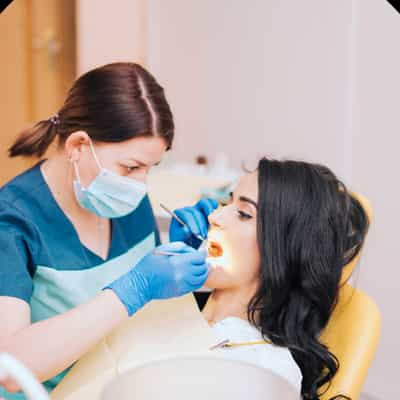
-Per-Jaw-Package-in-South-Korea-by-Seoul-Today.png)
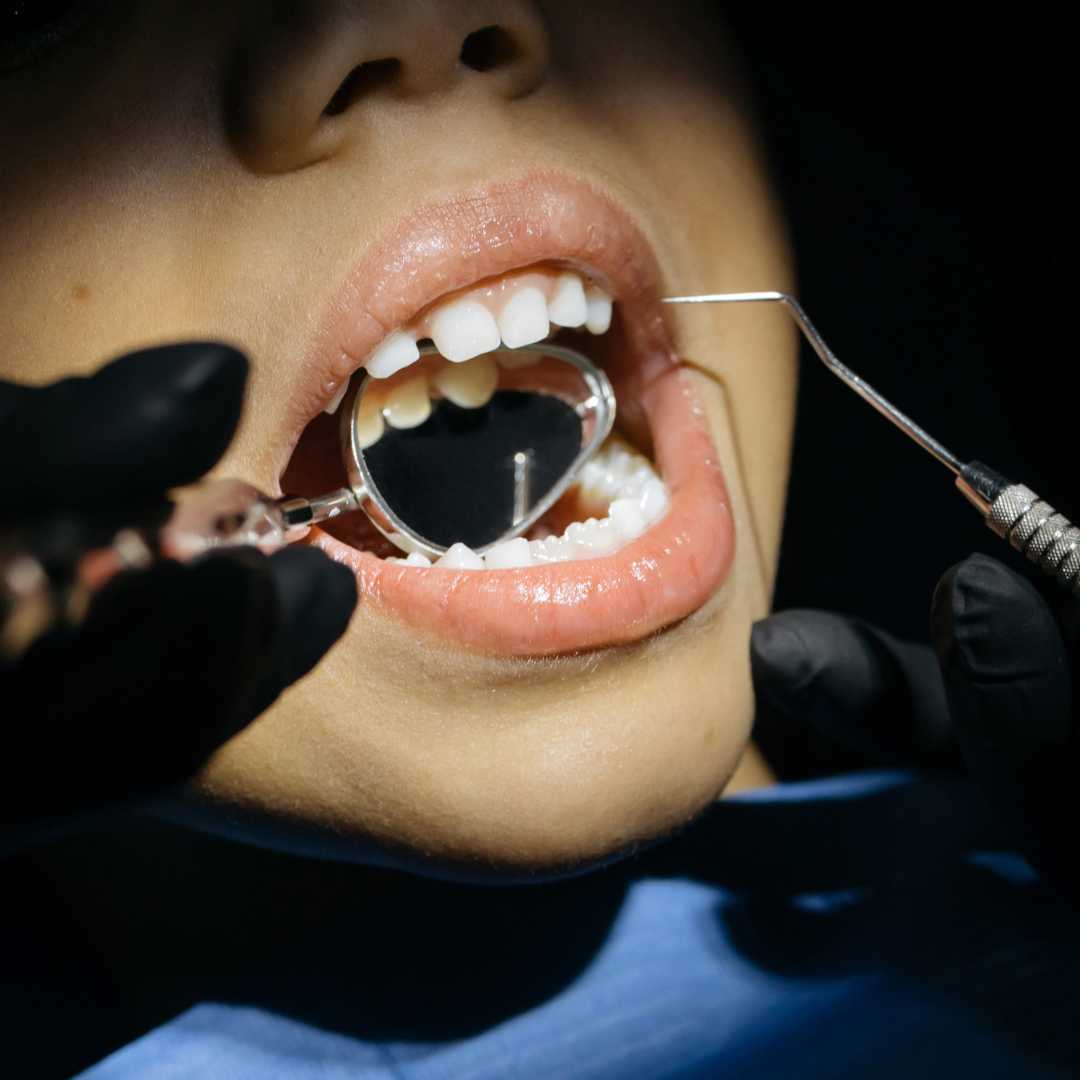
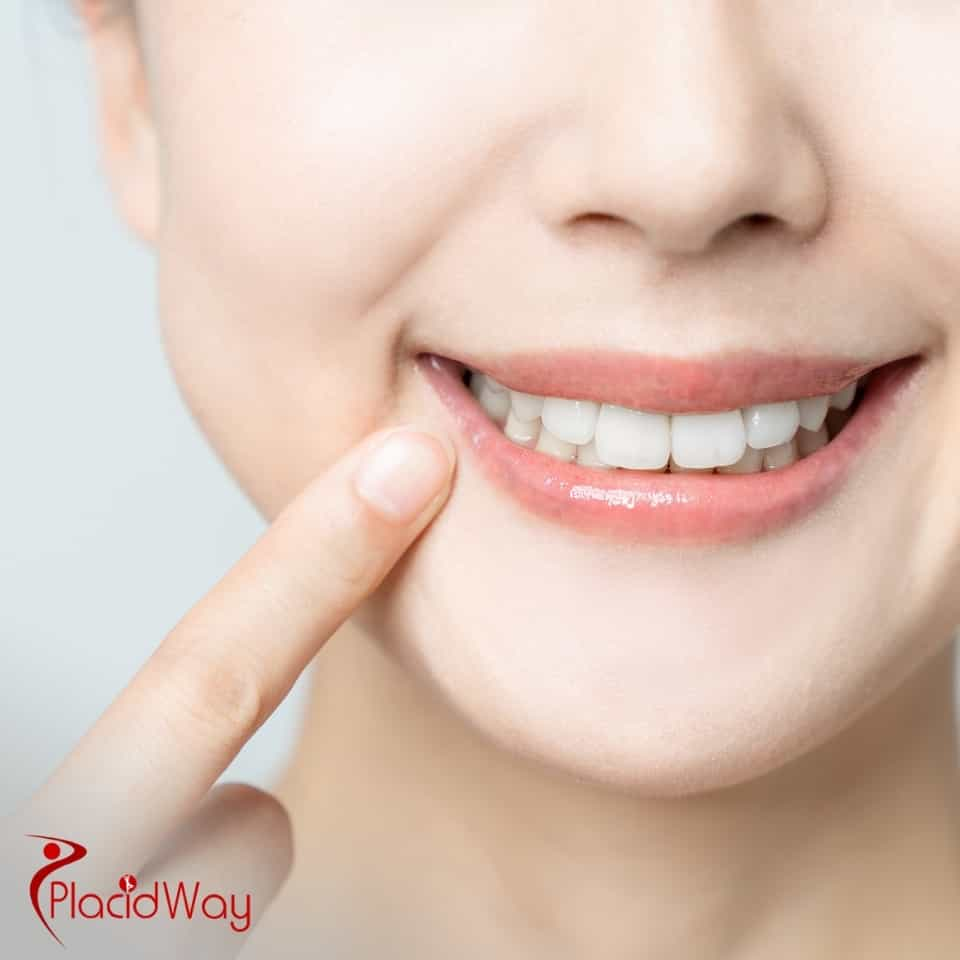
.png)
.png)
.png)
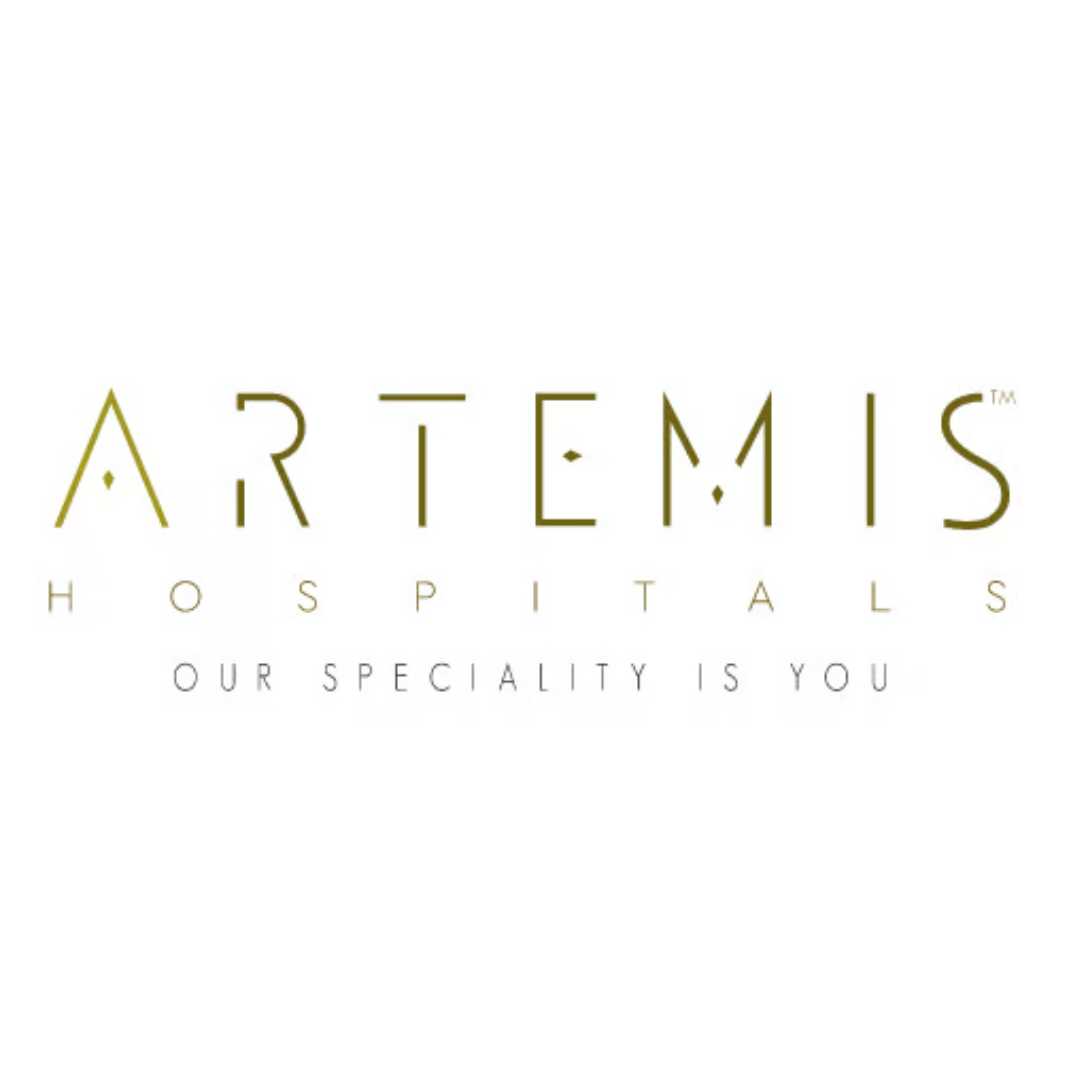


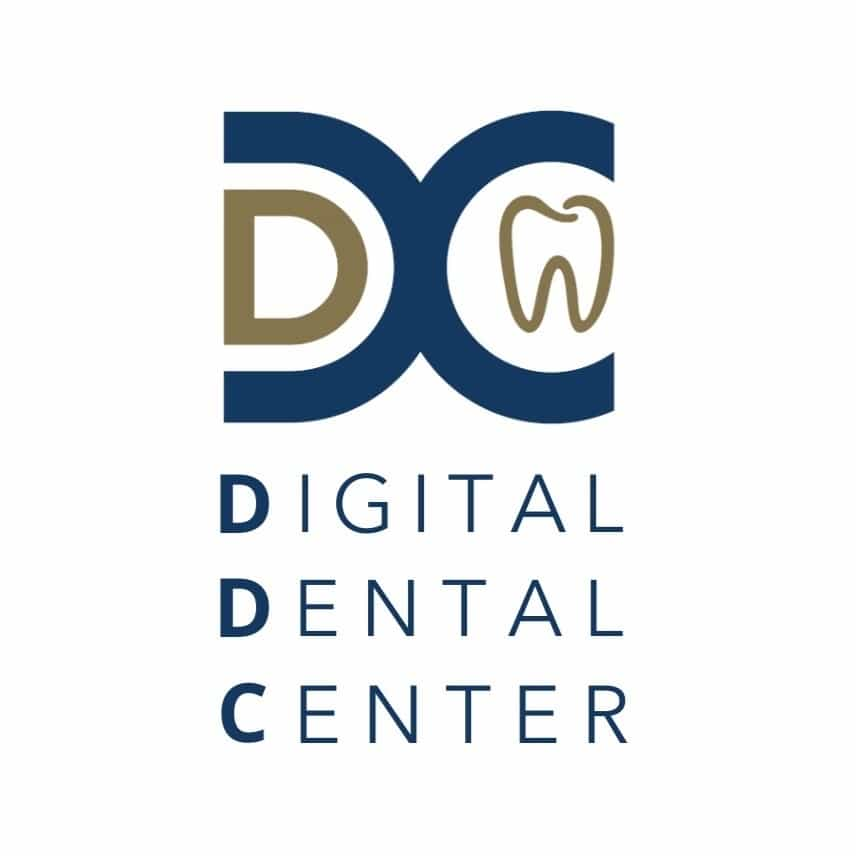


Share this listing